Wa Ni Ska Tan Alliance of Hydro-Impacted Communities
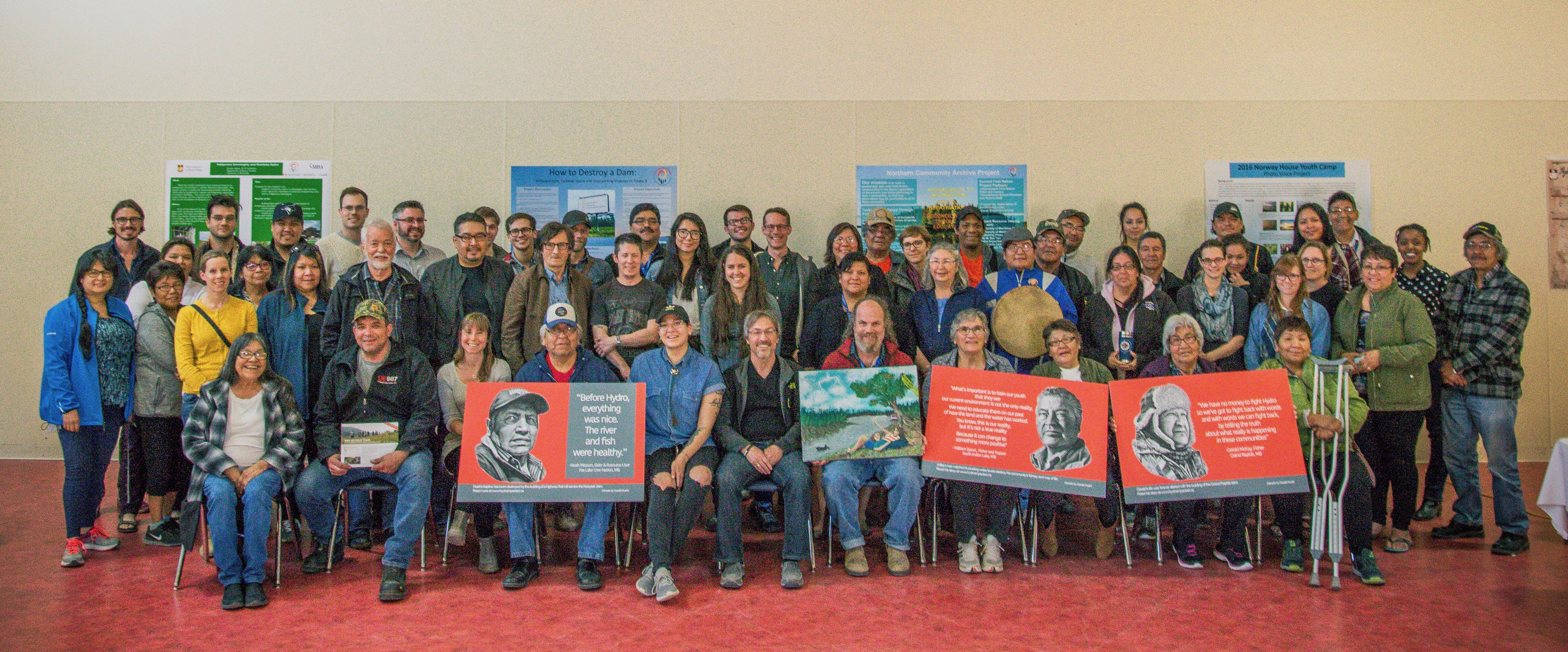
Wa Ni Ska Tan is funded by the Social Sciences and Humanities Research Council (SSHRC), which is one of three Canadian Government research funding agencies often referred to as the Tri-Agency. We are based out of the Environmental Conservation Lab in the Clayton H. Riddell Faculty of Environment, Earth, and Resources at the University of Manitoba.
Wa Ni Ska Tan Alliance of Hydro-Impacted Communities is a community-academic research partnership that emerged out of the priorities voiced by hydro-impacted Indigenous communities. We are an Indigenous-led organization governed by a Steering Committee made up of impacted communities, university researchers, and NGOs. Members of Wa Ni Ska Tan include researchers, academics, hydro-impacted community members, concerned citizens, and members of the NGO community in Manitoba. Some of our members are also Treaty rights holders with constitutionally-affirmed and protected rights.
Since we began in 2015 we have been documenting and critically evaluating the impacts of hydropower on First Nation communities, land, water, and livelihoods with the goal of increasing awareness of the impacts of hydroelectric projects among the general public and fostering social/environmental change.
All of our work is in close collaboration with impacted communities. Most of the work is focused in Manitoba but we also work with communities across communities and in other parts of the world. This work focuses on five main dimensions: research, community projects, education, public outreach, and advocacy.
BACKGROUND
Wa Ni Ska Tan emerged out of three meetings and two tours of hydro-affected communities in northern Manitoba. The Alliance is shaped by the priorities of hydro-impacted Indigenous communities. Principles underlying Wa Ni Ska Tan centre on transparency, accountability, cross-cultural sensitivity, mutual respect, and consensus in decision-making.
The research themes, core activities, and key outcomes of Wa Ni Ska Tan emerged from small group discussions at two gatherings, held in Thompson, December 2014, and Opaskwayak Cree Nation, June 2015. These are as follows:
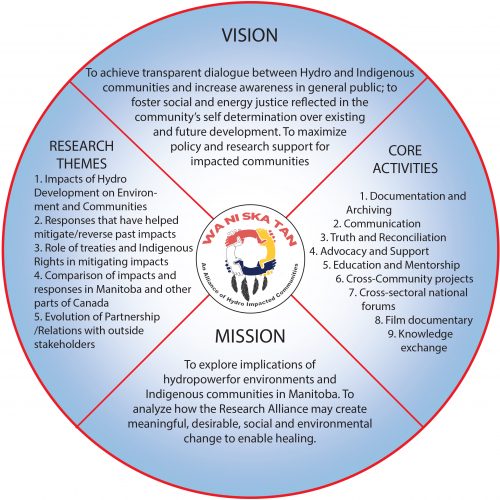
The above priorities are based on the priorities voiced by the hydro-impacted Indigenous communities. Wa Ni Ska Tan is comprised of representatives from twenty-four (24) Cree (Ininew/Inniniwak), Anishinaabe, and Métis nations; twenty-two (22) researchers; Fourteen (14) social justice and environmental NGOs. It also incorporates nine (9) universities from Canada and the United States. As well as multiple levels of government entities.
Find Wa Ni Ska Tan’s SSHRC Partnership Grant Application here.
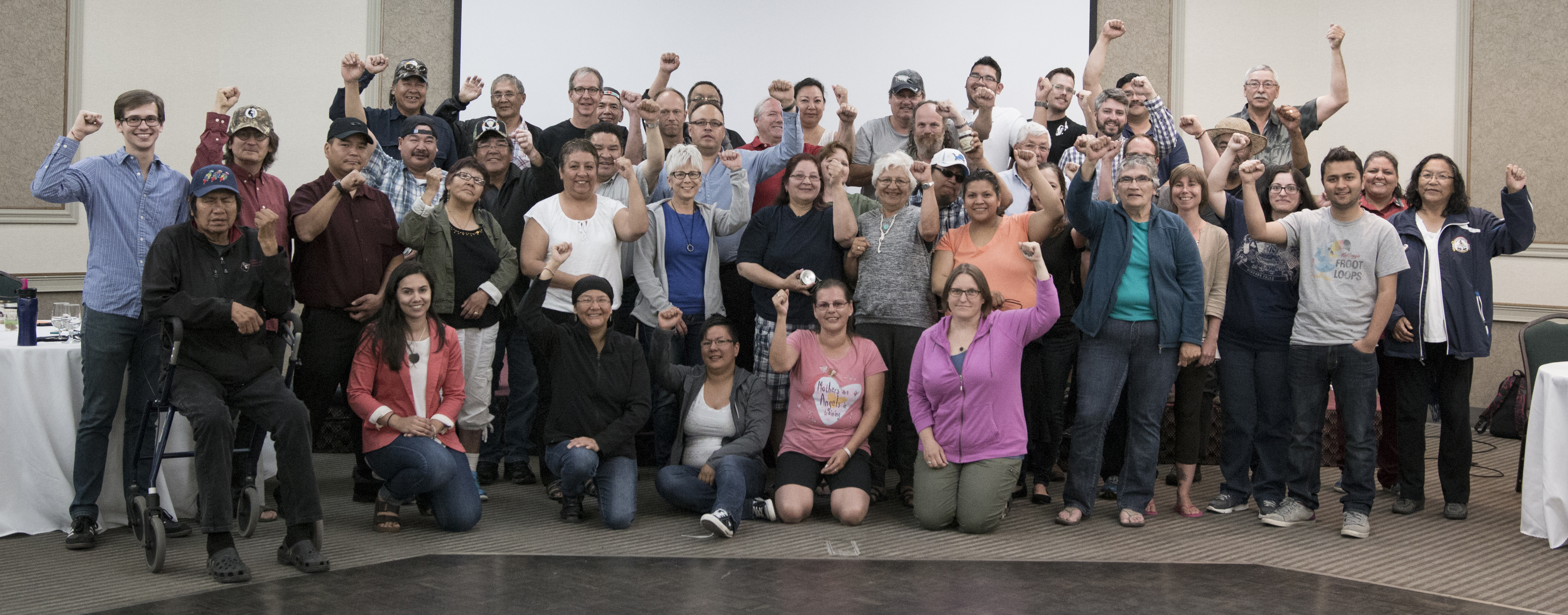
A Cross-Regional Research Alliance
Wa Ni Ska Tan means ‘rise up’ or ‘wake up’ in Cree and Ojibway. We like to think that it’s about action and raising awareness and social justice. Below are the five core activities of our research.

Education &
Mentorship
Our education projects are a cross-cultural exchange led by community members to show the affects, impacts, and responses to hydro development.

History &
Documentation
The Hydro Alliance moves forward with a spirit of renewed hope and action, in part looking back and documenting impacts on affected environments and Indigenous peoples.
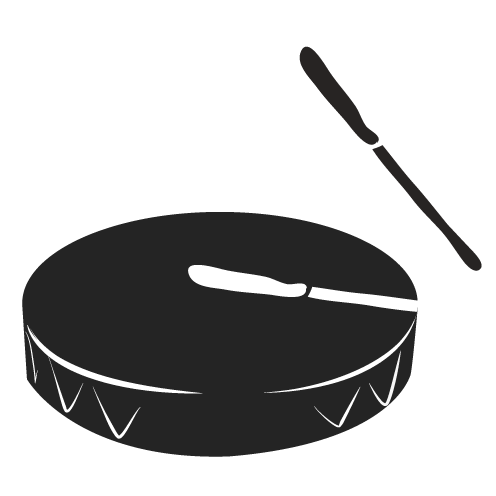
Action &
Communication
The Hydro Alliance is bringing together communities and building networks. We are creating lines of communications that are rarely supported, so that community leaders can participate in public decision-making and licensing processes. These network will grow with time to include more communities and create actions that include local, provincial and international stakeholders.
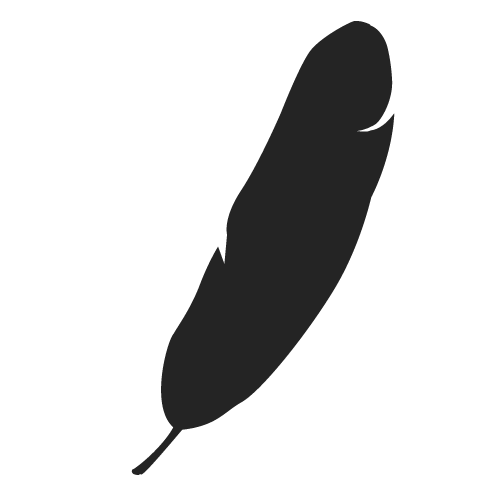
Participatory
Research
The Alliance will empower Indigenous communities and others Partners within the Alliance by providing relevant research outcomes, expertise and opportunities for community leaders to dialogue and strategize with each other and with outside stakeholders. The research will be long term, spanning years, and will be community led, and accountable. Research will explore how and to what degree this Alliance might enable meaningful and desirable social and environmental change. It will follow the protocols of decolonizing and participatory action research, in which we include the OCAP (Ownership, Control, Access and Possession) principles.

Truth &
Reconciliation
It was unanimous that Truth and Reconciliation be adopted as a central pillar of our work as a network. Using a truth and reconciliation frame in this Partnership allows us to reflect, process, and heal. Links to other atrocities such as missing and murdered Indigenous women, natural resource appropriation and the larger context of colonial violence and oppression are included in the truth and reconciliation process. By opening the definition of truth and reconciliation to include modern and historic oppression it also allows us to explore how the trauma associated with the residential school experiences affects trauma related to hydropower projects and other factors including gendered violence. In conducting our public outreach in Manitoba and beyond, we will extend the work of the TRC and show decision-makers and the public alike that all Canadians need to engage in an allied solution to past and ongoing oppression.